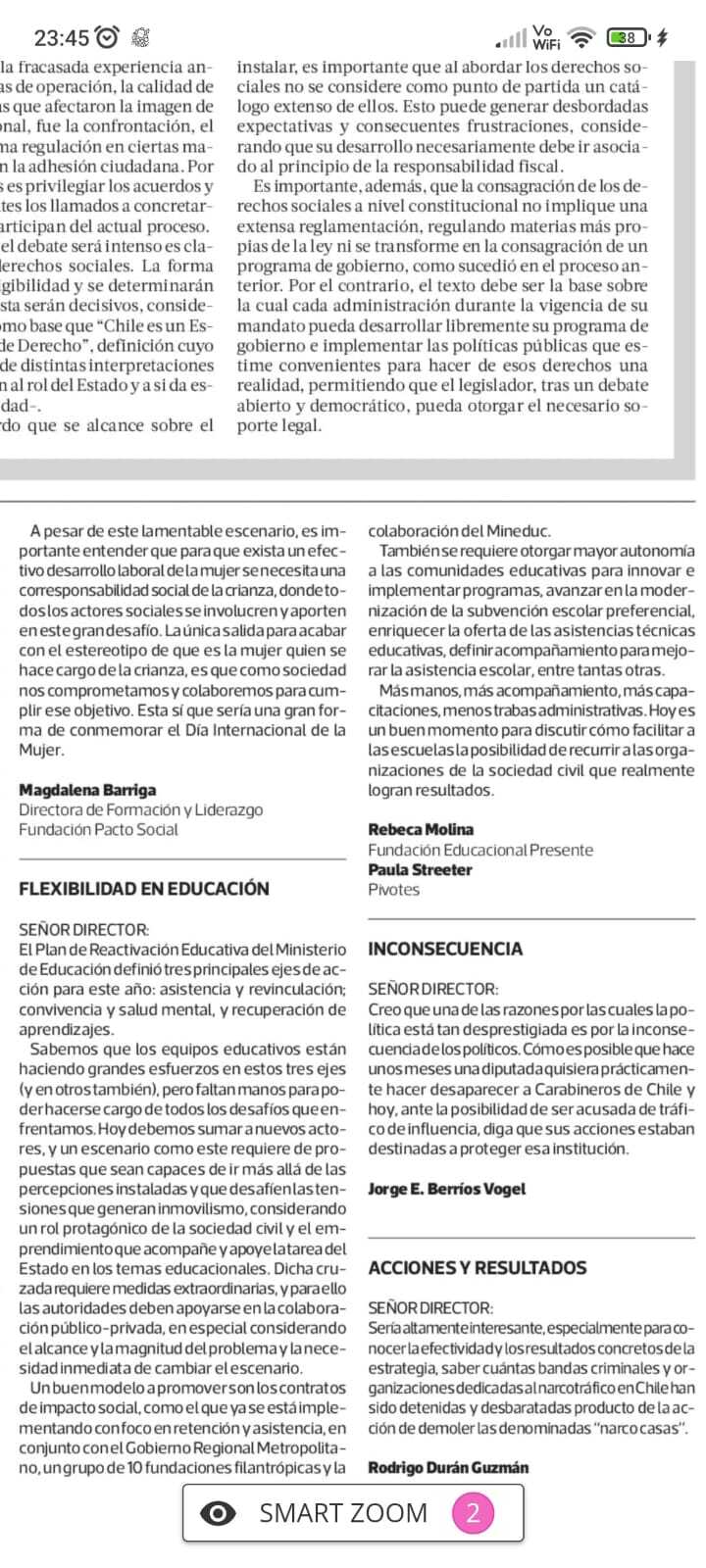Mr. Director,
The Ministry of Education’s Educational Reactivation Plan defined three main lines of action for this year: assistance and reintegration; coexistence and mental health; and learning recovery. We know that the educational teams are making great efforts in these three areas and in others as well, but there is a lack of hands to be able to take charge of all the challenges we face. Today we must add new actors, and a scenario like this requires proposals that are capable of going beyond the installed perceptions and that challenge the tensions that generate immobility, considering a leading role of civil society and entrepreneurship that accompanies and supports the task of the State in educational issues. Such a crusade requires extraordinary measures, and for this the authorities must rely on public-private collaboration, especially considering the scope and magnitude of the problem and the immediate need to change the scenario. A good model to promote are the Social Impact Contracts, such as the one that is already being implemented with a focus on retention and assistance in conjunction with the Metropolitan Regional Government, a group of 10 philanthropic foundations and the collaboration of the Ministry of Education. It is also necessary to grant greater autonomy to the educational communities to innovate and implement programs, to advance in the modernization of the Preferential School Subsidy, to enrich the offer of the ATES (Educational Technical Assistance), to define accompaniment to improve school attendance, among many others. More hands, more support, more training, less administrative obstacles. Today is a good time to discuss how to make it easier for schools to turn to civil society organizations that really can Rebeca Molina
Fundación Educacional Presente Paula Streeter
Pivotes


